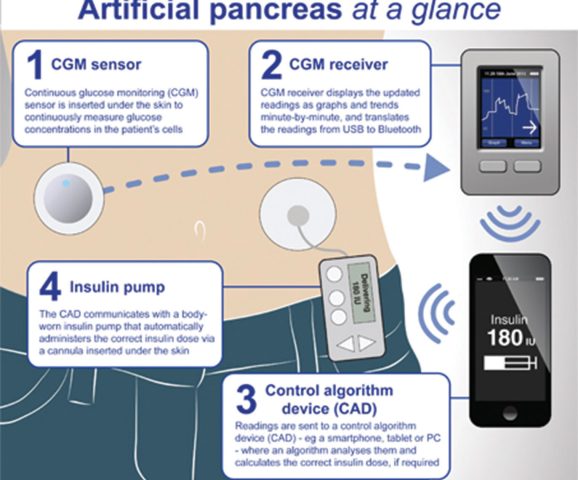Researchers have made significant strides in treating type 1 diabetes, with a study linking the rise in cases among Nigerian children to the COVID-19 pandemic. A breakthrough in the UK allows over 150,000 individuals with type 1 access to an “artificial pancreas” technology, hailed as a major advancement. This device, costing less than £5,000 per patient, employs a hybrid closed-loop system to monitor blood glucose continuously. England and Wales recommend its use for those with inadequately controlled this disease. The National Institute of Health and Care Excellence (NICE) sees this as a game-changer, potentially reducing complications and healthcare costs.
Simultaneously, a team in Canada has enhanced the process of generating insulin-producing cells from a patient’s stem cells, moving closer to injection-free treatment for this disease. This method, using an anti-tumor drug, shows promise in achieving insulin injection-free glucose control in mice.
The Juvenile Diabetes Research Foundation (JDRF) considers the “artificial pancreas” the most significant breakthrough since insulin. Another development involves a step toward injection-free treatment, bringing hope to people with diabetes.
Meanwhile, a study in Nigeria explores the link between COVID-19 and type 1 diabetes among adolescents. An increase in T1DM cases is observed globally, with factors like pandemic-induced stress and delayed diagnosis initially considered. Elevated angiotensin-converting enzyme 2 receptors in pancreatic tissue further support the connection between COVID-19 and T1DM, particularly in genetically susceptible individuals.
Additionally, a study on children and adolescents with T1DM in Nigeria reveals poor compliance with dietary recommendations and insulin therapy. Efforts to educate parents on management guidelines are deemed essential.
Conclusion: Diabetics

Nigeria, part of the IDF African region, faces a rising diabetes prevalence, with 24 million cases projected by 2045. In 2021, Nigeria had 96.8 million adults with diabetes, including 3.6 million cases of T1DM. The IDF reports 537 million people worldwide living with this disease.

